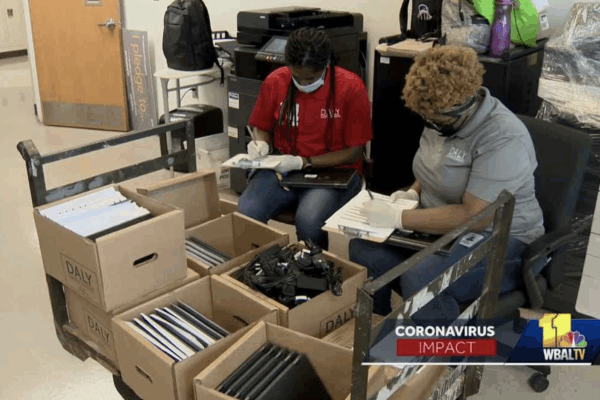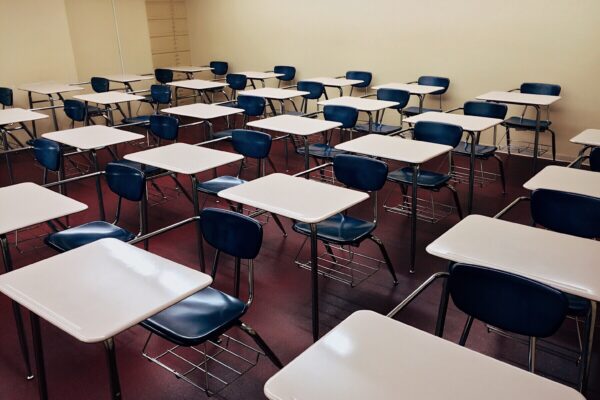State Funding Must Prioritize Students Burdened from Decades of Underfunding
ANNAPOLIS, MD – Governor Larry Hogan's veto of the Blueprint for Maryland's Future bill means that tens of thousands of children will continue to attend substandard schools that do not meet the state's constitutional guarantee of a "thorough and efficient" education. The COVID-19 crisis threatens to exacerbate the alarming disparities in education funding, opportunities, and outcomes that already exist in Maryland schools. To ensure that all students are provided an excellent education, the American Civil Liberties Union (ACLU) of Maryland and the NAACP Legal Defense and Educational Fund, Inc. (NAACP LDF), along with the law firm Baker Hostetler, urge the state legislature to override the governor's veto of the Blueprint bill.
In light of a projected decrease in state revenue, the groups also call on the legislature to make critical changes to the Blueprint bill to ensure highest priority for the districts already struggling from decades of underfunding and furthest from funding equity and adequacy. Programs that target Black and Brown students, students from families with low incomes, and students who are English language learners (ELL) should also be prioritized.
"While full implementation of the Blueprint bill may be delayed, there is an opportunity and urgency for the state to uphold the right to an education of students and families whose schools have been historically underfunded for decades," said Frank Patinella, Senior Education Advocate for the ACLU of Maryland. "Targeting investment towards reducing the enormous racial disparities in outcomes and opportunities must be the state's top priority for education."
In 2002, in response to court rulings in Bradford v. Maryland State Board of Education, which condemned the gross underfunding of Baltimore City schools, the state passed the "Thornton" education funding law to ensure that all public schools across Maryland were adequately funded. In 2008, the state cut "Thornton" funding, and losses from changes made to the formula have compounded inadequacies in school funding over the past decade. The state’s own study showed that Maryland schools are being shortchanged by at least $1.5 billion annually. Baltimore City and Prince George's County — the districts that have the largest share of students who are Black and Brown, who require special education services, who are from families with low income, and who are English language learners — have the greatest losses in funding.
The Kirwan Commission was tasked with updating Maryland's education funding formula and policies so that schools can deliver an excellent education consistent with updated state and national standards and responsive to the state's changing demographics. This rneevaluation of the funding formula was a mandate included in the "Thornton" law that was slated to begin in 2012. Inaction and perpetual delays in completing the adequacy study led to enormous and increasingly inequitable gaps in education funding.
Given these delays, the ACLU of Maryland, LDF, and Baker Hostetler invoked the Bradford lawsuit again to seek long-awaited state funding that children in Baltimore urgently need and to which they have a right under state law. “The State of Maryland is long past due in meeting its constitutional obligation to fully fund both school facilities and educational programs for Baltimore students,” said Cara McClellan, Assistant Counsel, NAACP Legal Defense Fund. “Now more than ever, we need decisive state leadership committed to addressing chronic racial disparities in Maryland public schools.”
The COVID-19 crisis further exposes and threatens to greatly exacerbate the inequity in educational opportunities that already exist between districts of low wealth and high wealth, and between students of color and their white counterparts. Baltimore City Public Schools (BCPSS) reported that approximately 45 percent of students do not have computers and/or internet access for remote learning. In collaboration with Baltimore City leaders — which provided $3 million to address the gaps in technology — BCPSS purchased and distributed over 12,000 computers to date. BCPSS has also set up internet hotspots and has been working families to acquire a free 2-month internet service offered by Comcast. However, alarming gaps still remain in Baltimore City and, to a lesser extent, in other Maryland counties.
###
Related Content

Race Equity Must Be a Key Priority for the Kirwan Commission

The Digital and Racial Divide Keeps Widening as the Pandemic Continues
Stay Informed
Sign up to be the first to hear about how to take action.
By completing this form, I agree to receive occasional emails per the terms of the ACLU’s privacy statement.
By completing this form, I agree to receive occasional emails per the terms of the ACLU’s privacy statement.



